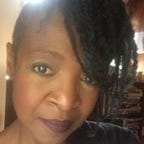Revisiting black Miami’s history with fellow scholars and artists
As shared elsewhere, yesterday, I remotely joined several scholars and artists for a follow up gathering to the one held last September.
Once more, I communed with people who, like me, are greatly interested in Miami’s past, present and future. The opportunity to meet was largely owed to the University of Miami’s Center for Global Black Studies.
I longed to be there in-person with some incredibly rich souls who met by the seaside near a UM facility on Key Biscayne. They met on a sliver of land holding Virginia Key Beach, a once-segregated space that my family knew well.
For more, see the video below for my presentation, which is part a spoken word appearing in Chapter Eight of my newly-released public history book/memoir.
To speak about my book, which seems to largely address my teaching at the University of Alabama, is to also speak about me.
The people and places I have known.
Shared dreams and fears.
One’s mission during the short moment we all have on this planet.
The latter resonates when I think of a documentary about Sidney Poitier that I saw this morning. We both have ties to the Bahamas. The late actor experienced some of the horrors my family experienced in South Florida. Poitier reflected on how he’d learned to recommit to his own dreams while watching so many need this and that from him. And this was after his winning an Oscar. I heard him and I realized once more how it takes courage to bear witness to and follow through on such a commitment. And he had such courage. How he inspires!
On that note, during the Q & A portion of this event, I most appreciated hearing someone from the audience inquire about the archives used for my research and that of my fellow panelists Dr. Mysia Anderson, Dr. Karlisa Callwood and Dr. Donette Francis.
I shared how my archive includes oral histories that have been offered in a funded manuscript that has been peer reviewed countless times but remains unpublished beyond a journal article and now, Chapter 8 of my latest book.
It reminded me of something Octavia Butler, the late sci-fi writer, once said: what people do with our work is as important as the work itself.
I think also of a student enrolled in my Afrofuturism course this past spring who took my syllabus, left the course and said she looked forward to learning about the topic — on her own. The outcomes of her decision may be astounding or not. Certainly, it has been striking to watch how the ideas — yes, a syllabus is a piece of intellectual property — we put out there emerge or reemerge and how they do so in our very troubled world. Social media has made it possible for all of us to be our own storytellers. Influencers. For however long. Along the way, how community manages to get created amid such idea-sharing is something to behold. Being able to build a lasting community and ideas simultaneously becomes something like a miracle, in fact.
“I think most people are essentially good,” a saleswoman in Chiswick told me yesterday after passing me the incense I’d purchased. She shared her thoughts on the protesting young folks, and the anger and fear that keep some of us more divided than not. Near us, a listener was quiet. Did that listener agree? Disagree? I don’t know. Sometimes silence is best.
It will be interesting to see how it all unravels.
Or is rewound and presented once more.
Doubtless, my desire to be more creative in these increasingly trying times will factor in. I told the audience about my desire to reengage some of my training in the arts. Get the happy hormones going. Again.
